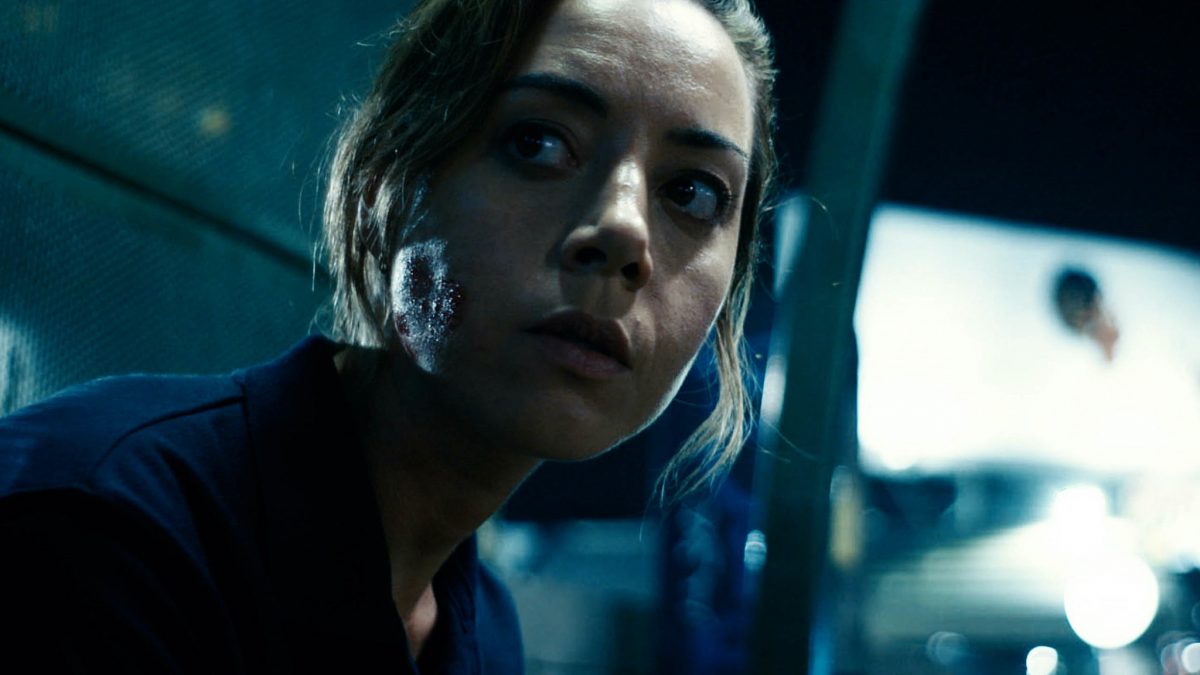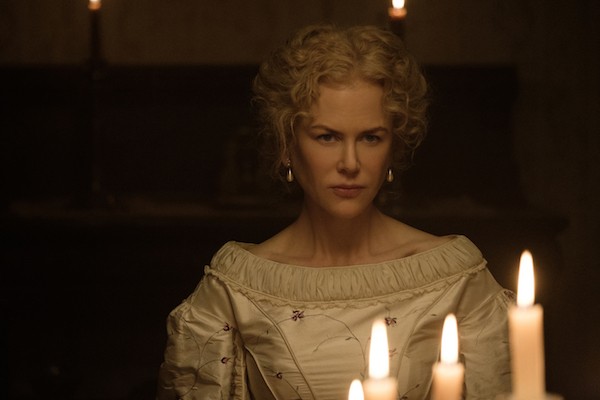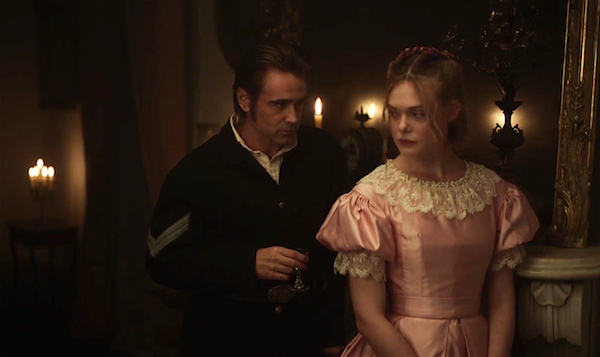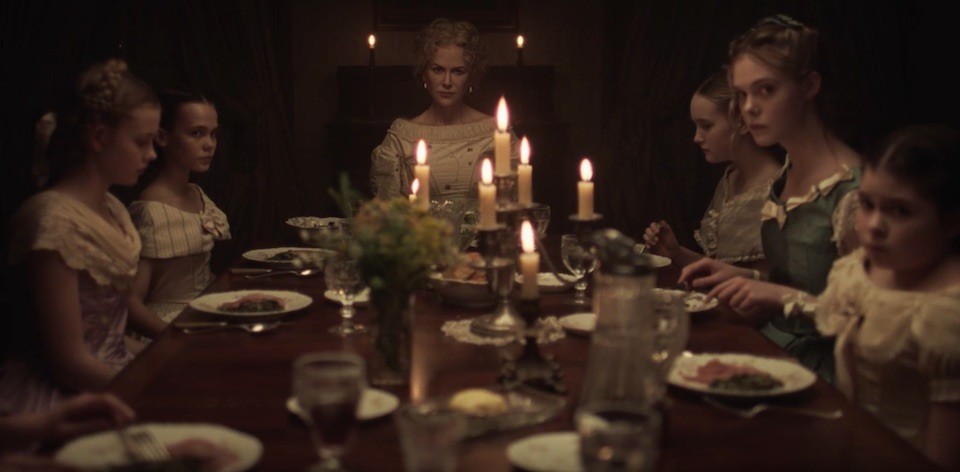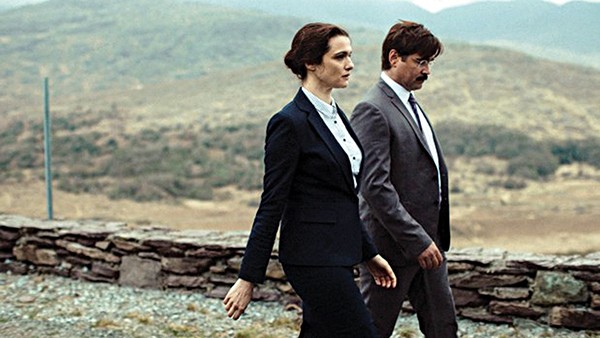The good part about having a virtual Sundance pass is the wealth of great films it provides. The bad news is that, since you’re not fully immersed in the Park City bubble, real life goes on, and you may not get to watch everything that looks good. I’ve certainly been feeling that tension over the last week, and trying to be judicious with my picks. That means skipping everything that will be shown this weekend at Crosstown Theater as part of Indie Memphis’ satelite screening program.

The exception was the short film “What Travelers Are Saying About Jornada Del Muerto,” the short film by Memphian Hope Tucker, which will screen Saturday, January 29, at Crosstown. It’s essentially montage of shots from the Trinity test site in Alamogordo, New Mexico, where the first atomic bomb was detonated in 1945, overlaid with online reviews from people who visited as tourists. You know me, I love the experimental stuff, and this one certainly scratched that itch.

Through happenstance, I watched two films in a row that dealt with the thorny question of our relationship with artificial intelligence. The first was After Yang, which was one of the first films I added to my schedule when the Sundance website went live. Mononym-ed director Kogonada adopted a short story from Alexander Weinstein that recalls the Brian Aldiss classic “Supertoys Last All Summer Long,” which became Steven Spielberg’s A.I. Artificial Intelligence. When Jake (Colin Ferrel) and Kyra (Jodi Turner-Smith) adopted a daughter Mika (Malea Emma Tjandrawidjaja) from China, they wanted to make sure she felt connected to her roots, so they purchased Yang (Justin H. Min), an android who would be a surrogate older brother. Now, Mika is four years old, and Yang is a trusted part of the family. But when he suddenly malfunctions (in a great scene that shows the family competing in an online dance game), Jake runs into trouble. He bought Yang as a refurb from a fly-by-night store that isn’t there any more, and the manufacturer won’t honor the warranty. When he consults a gray market android repair service, he uncovers the secrets of Yang’s past, and the independent existence his “son” had hidden from him.
After Yang looks great, and the underlying story is strong, but it only has one speed. Ferrel and Turner-Smith are both more than capable, but they are reserved to the point of flatness. The film is interesting, but more admired than loved by me.
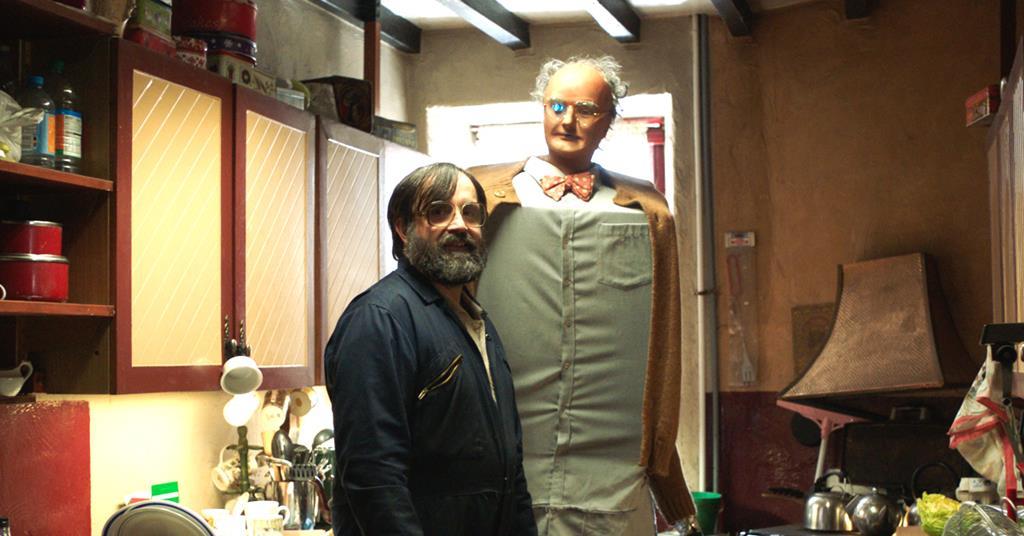
The other half of my inadvertent A.I. double bill took an entirely different approach. Brian and Charles by Welsh director Jim Archer is a comedy about an eccentric inventor (David Earl, who shares a writing credit on the film) who is tired of developing the egg belt and pinecone bag, and decides to swing for the fences by building a robot. He succeeds beyond his wildest dream, and his creation dubs itself Charles. Brian is an unlikely Dr. Frankenstein, and he throws himself into parenting his creation, who progresses to toddler stage very quickly. Brian wants to shield Charles from the dangers he knows come with being an outsider, but the robot wants to explore and see the world. Their little household is thrown into crisis when Brian’s jerky neighbors discover Charles and steal him to work on their farm.
Brian and Charles is charming, with a pair of good performances by the leads and a well-attuned screenplay. But the jokes never rise above the chuckle level, and the indie film quirk level is set to “cloying.” Still, I enjoyed both After Yang and Brian and Charles for their thoughtfulness.
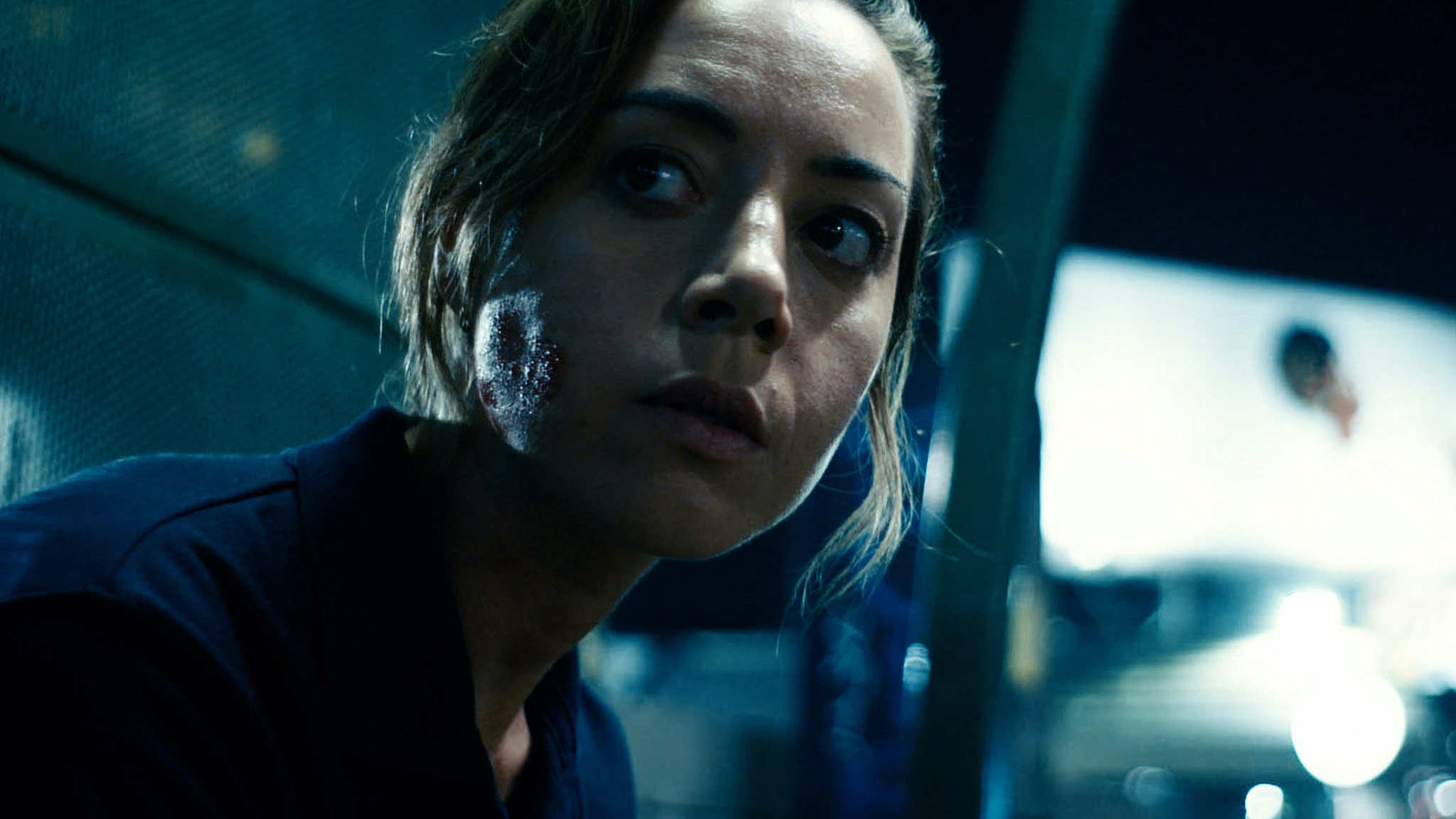
Aubrey Plaza was the driving force behind Emily the Criminal, as she found the screenplay by John Patton Ford and spearheaded the production by agreeing to take on the title character. Emily is struggling as a caterer in Los Angeles, even though she has a degree that would qualify her for high-paying advertising jobs. She has a DUI on her record, because she was the least-wasted person in her friend group that went to a music festival, and had the bad luck of getting pulled over when she tried to drive everyone home. One of those friends (Megalyn Echikunwoke) is trying to help her get a good job out of guilt, but nobody wants to hire a felon. Meanwhile, a co-worker steers Emily toward a lucrative freelance opportunity: working as a “dummy shopper” using stolen credit card information to buy big screen TVs, which are then sold on the black market. Emily quickly learns that she can make a killing crime-ing, but she’s torn between the promise of the straight life and going full Walter White — especially since her natural talents seem to lean toward breaking bad.
Plaza, like many who started out in comedy, is an incredibly good actor when she turns her timing and control toward drama. Ford’s screenplay is a finely honed machine, and the jittery camerawork works perfectly, especially in a harrowing scene where Emily has to brazen her way through a car heist while surrounded by gangsters twice her size. You can be forgiven if you get a strong Uncut Gems vibe from Emily the Criminal, but I loved this film.
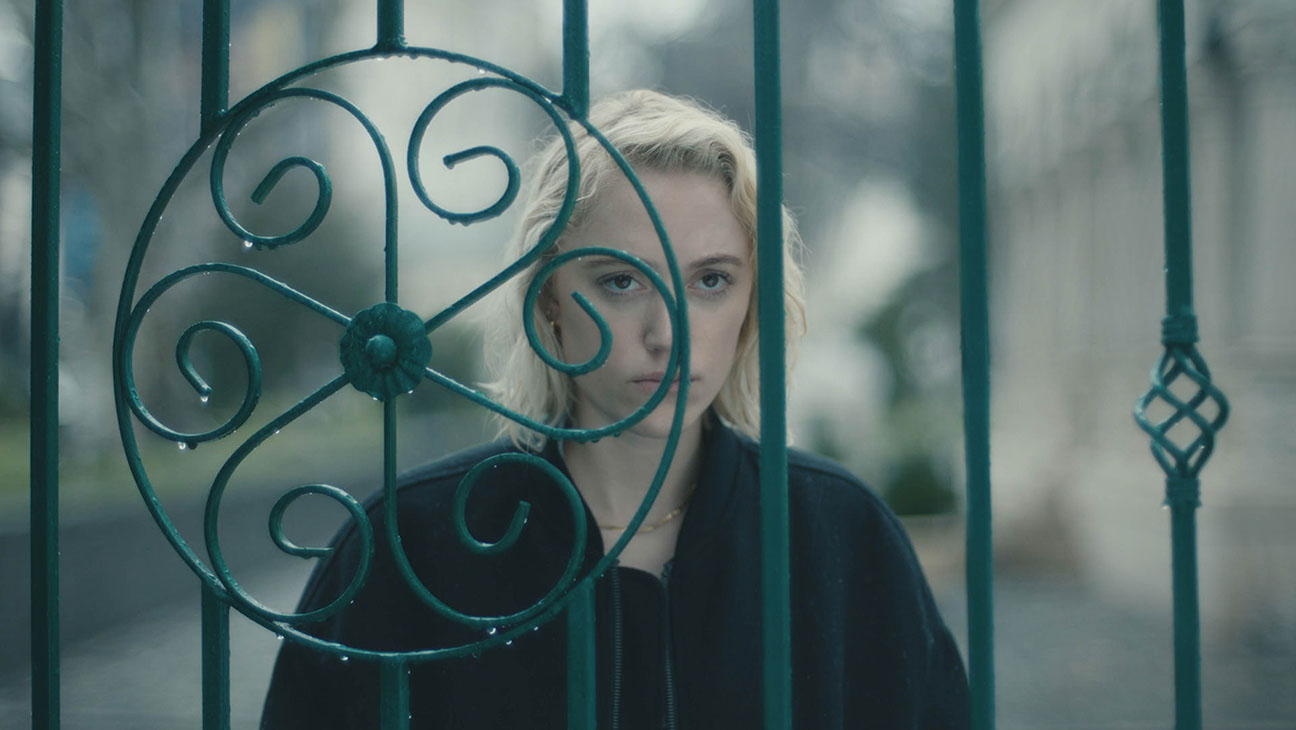
Another strong entry in the narrative category is Watcher by director Chloe Okuno. A slick, Hitchcock-by-way-of-De Palma riff on Rear Window, the film is driven by some ace production design (one thing this Sundance has in abundance is great-looking interiors) and a charismatic performance by lead Maika Monroe as Julia, a newlywed who abandons her acting career to move to Romania with her husband, where she finds mostly ennui with a side order of menacing peeping tom.
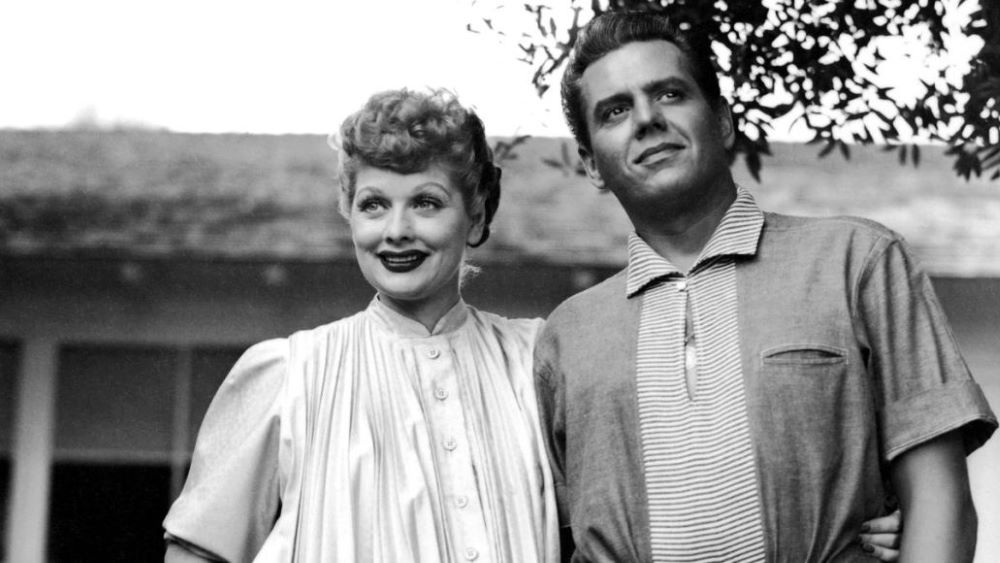
The nonfiction films continue to be very strong this year. Lucy and Desi is a passion project for Amy Poehler. Given full access to the Desilu archives and the couple’s personal effects by daughter Luci Arnaz Luckinbill, Poehler’s film goes a lot more in-depth into Lucille Ball and Desi Arnaz’s unlikely and historic relationship, and explores the couple’s unrivaled legacy of television innovation more than the recent biopic starring Nicole Kidman and Javier Bardem (which was infected with a terminal case of Sorkin-ism).

The best doc I saw at Sundance is also superior to the fictionalized version of the story. The Janes from directors Tia Lessin and Emma Pildes is the story of the Chicago-area feminist collective which provided illegal abortions in the late 1960s and early 1970s. The clearly told doc features some incredible interviews with people on both sides of the issue, including the policemen who ultimately busted the Janes in 1972. The cast of characters, it turns out, were much more interesting in real life, and the film’s stories of the day to day, cloak and dagger proceedings of the group, and the darkly funny story of how it all came apart, just exposes what an incredible missed opportunity its Sundance selection Call Jane was. The Janes is an HBO production that will premiere on the company’s streaming service later this year, and it is not to be missed.
